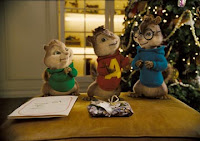
Lawrence Grobel has been a freelance writer for thirty years, Playboy calls him "the interviewer's interviewer." In 1993 he sat down with Andrew Greeley:
Lawrence: "What's the most courageous thing you've done as a writer?"
Andrew Greeley: "The greatest risk was to turn from nonfiction to fiction. It took me a while because I wondered if I was able to do it. It was a risky business, not because I was going to put some eroticism in my books, I'm unself-conscious there, sexual attraction is part of the human condition, you can't write a story without it - I just felt telling stories was a risk."
Lawrence: "What would you say is a main theme that runs through you books?
Andrew Greeley: "Second chances. That we keep getting second chances."
Lawrence: "Would Chicago always be a subtheme"
Andrew Greeley: "Somebody once said, "Why don't you take your novels out of Chicago, it's not the center of the world." And I say, "Yeah, it is." Faulkner was comfortable in Mississippi; I'm not Faulkner, but I write about Chicago."
Endangered Species, Writer Talk About Their Craft, Their Visions, Their Lives
by Lawrence Grobel
Published by DA CAPO Press (c) 2001
page 166, 167





